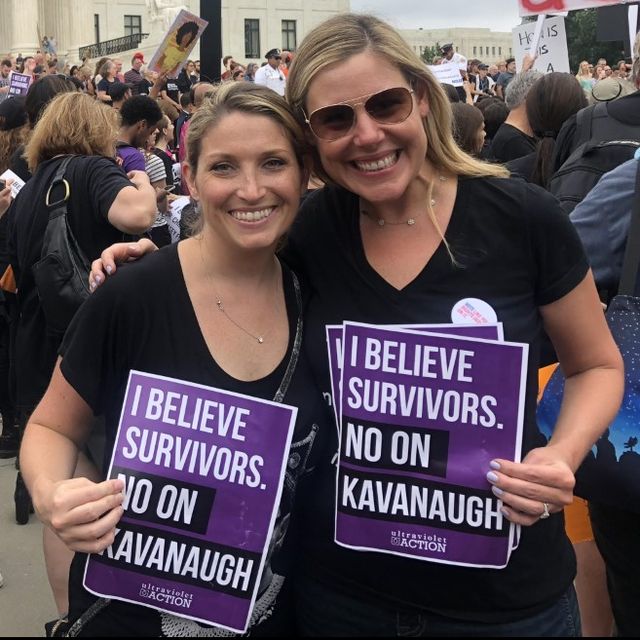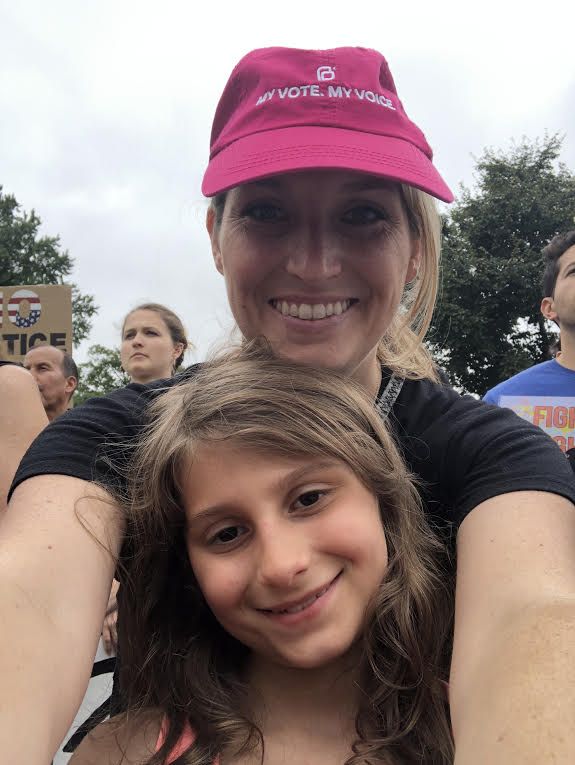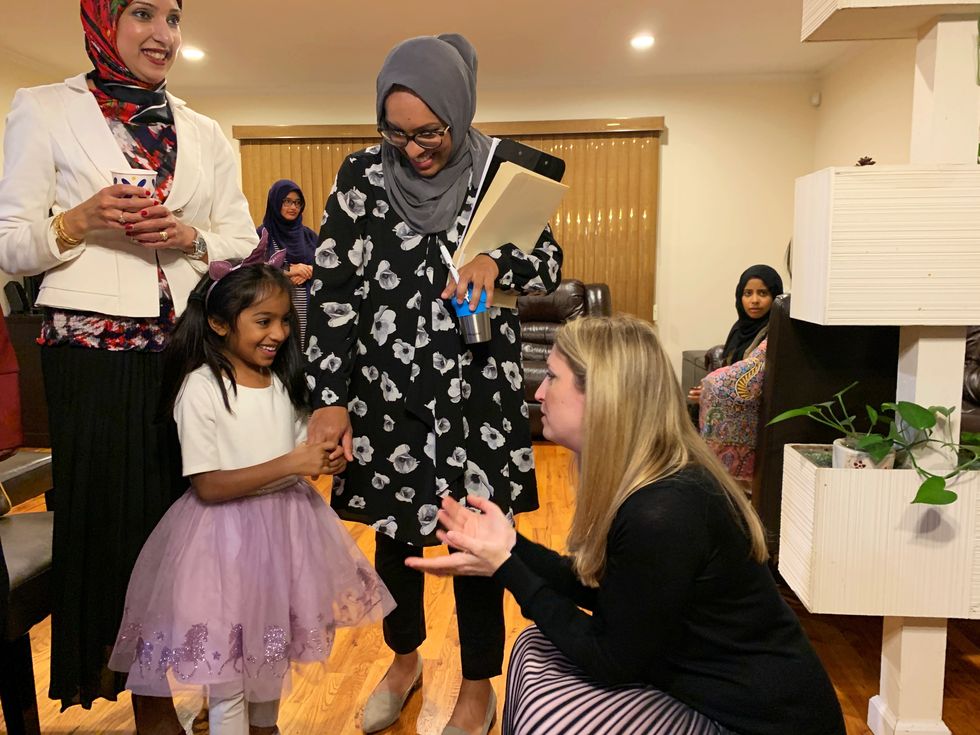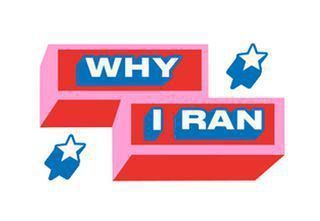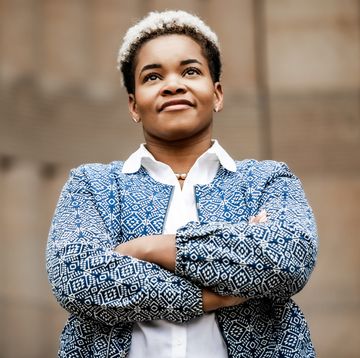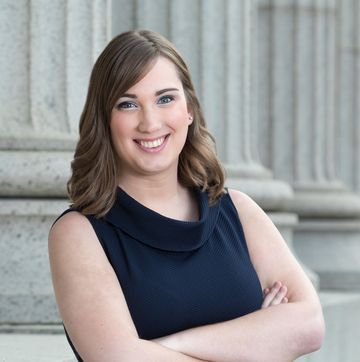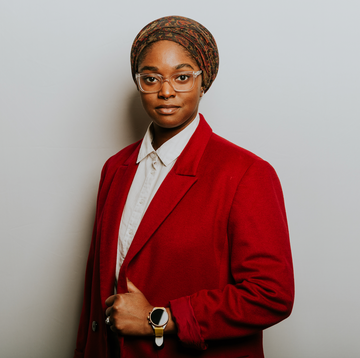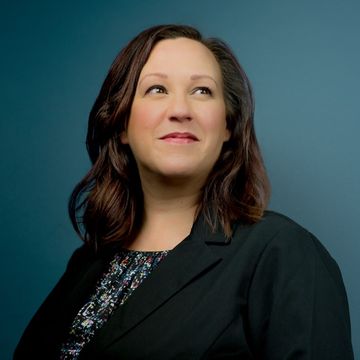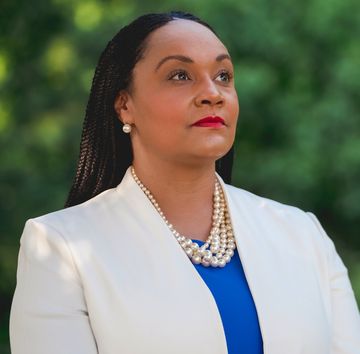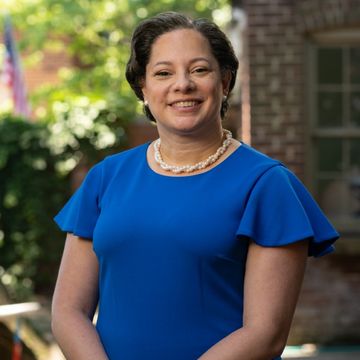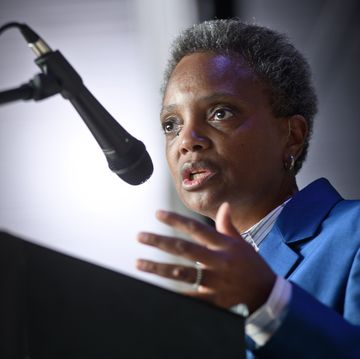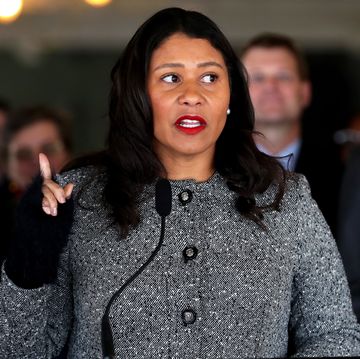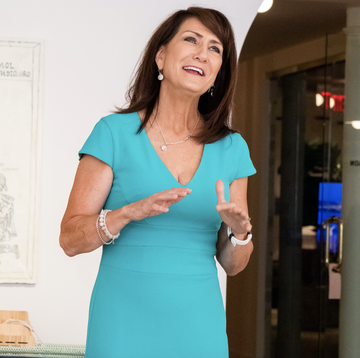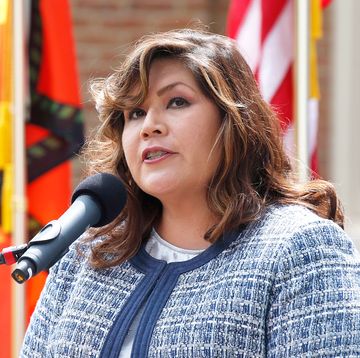Historically, women have needed to be convinced to enter politics. But since the 2016 presidential election, thousands of women announced their plans to run for public office. And we want them to win. So we're giving them examples of women who have run. The point: You can too.
When Donald Trump first began his campaign for president, it was unclear what to make of him. Was he a successful businessman trying to drum up larger-than-life PR? Was he a reality TV host looking for his next big stage? Was he, in fact, a hopeful politician? A Republican, even? Three years after the presidential election, the questions have only multiplied and the answers are even murkier than before. But for Melanie D’Arrigo, one thing was always clear.
“The election was something else,” she says, sitting in a local bookshop cafe in Port Washington, a waterfront hamlet in Long Island, New York, and part of the congressional district D’Arrigo hopes to represent come 2021. “I saw this vile, disgusting abuser who was seemingly rising in the ranks and all these people following him. When you have experience with that vile abuser in your life, as I did when I was younger, I recognized it right away. I knew what it was going to lead to.”
It’s not that she predicted his win. In fact, she thought the opposite. D’Arrigo was pregnant the day of the 2016 election, carrying her son who would be born that following January. Before leaving the house, she pulled on a white maternity shirt and spoke to her belly, saying, “This world is going to be so much better for you. You’re going to grow up into such a different world.” Obviously, she says, that didn’t happen.
Instead, she was left to contend with the fact that her country had elected someone accused of sexual assault into the White House, the same person who she heard joke and laugh in the infamous "grab ‘em by the pussy" video. What some people saw as “locker room” talk, she saw as entitlement, and it made her stomach turn. Once the election dust settled, she decided to get more involved. “I didn’t know what else to do. I thought surely we were asleep at the wheel, our heads were in the sand, we were too comfortable, like that was privilege smacking us all in the face.” She showed up to the first Women’s March in 2017 wearing a pregnancy diaper, still recovering from delivering her son. She helped organize the March the following year and turned her focus to electing as many Democrats as possible, phone banking for candidates across the country and eventually volunteering for and managing her state assemblyman’s re-election campaign.
But the reality check wasn’t over. On July 9, 2018, President Trump nominated Judge Brett Kavanaugh as the next Supreme Court Justice. Soon after, a California professor named Dr. Christine Blasey Ford came forward to accuse Kavanaugh of sexual assault, shortly before the Senate Judiciary Committee was set to vote on the nomination. Ford alleged that Kavanaugh assaulted her when the two were in high school, groping her, grinding his body on top of hers, and putting his hand over her mouth to prevent her from screaming. D’Arrigo, who says she was sexually assaulted when she was a child and then later in college, had a visceral reaction to Ford's testimony. She traveled to D.C. with the New York City chapter of Planned Parenthood for the Committee's vote, the same day that Ana Maria Archila confronted then-Senator Jeff Flake in an elevator.
"When you endure sexual assault, it doesn’t just go away," she said. "It’s not like an accident. It’s not like you fall, you trip, you break your leg, and it’s horrible and it heals and mends and then you build up your strength and you go on. Sexual assault is something that re-traumatizes you over and over and over again. For me, for many, many years, it was something that manifested in nightmares, heart palpitations, high anxiety. It was something I thought about many times a day for many years…when something like [Kavanaugh] happens, it’s very hard not to have your own emotions and memories come up."
Ford's testimony was so familiar to D'Arrigo—the way Ford had latched onto small sensory details from the night of the alleged assault, like the loudness of the music or the sound of Kavanaugh laughing. She wanted to be there, in D.C., as a symbol that Ford was not alone. "I was a little bit shellshocked, but I needed my daughters to know that I was on the front lines, that I was standing up for them."
She made it down again in early October on the day the Senate voted to officially confirm Kavanaugh as a Supreme Court Justice, this time arriving with her whole family (her kids were eight, five, and one, at the time) and her friend’s family. It was a hot day, and they stood at the foot of the Supreme Court. And then, something shifted. Later that day, when her friend asked what they were going to do next, D’Arrigo responded simply: "I’ll run for office."
Now, D’Arrigo is months into her congressional race in New York’s 3rd district, challenging the incumbent Democrat Tom Suozzi, who’s held the position since 2017. In her campaign, she's refusing corporate PAC money and supporting common sense gun safety, Medicare for All, and the Green New Deal. She's spoken out about her experience with pregnancy discrimination, and she picked up an endorsement from the National Organization for Women. She also introduced the PAID BY Act, which would require politicians and candidates to disclose any corporate and special interest donations that pose a conflict of interest. Unlike Trump and Kavanaugh, whose political paths were built upon a rich upbringing and American-made entitlement, D’Arrigo’s was less clear. As a kid, she lived with her grandmother, grandfather, two sisters, and three uncles in a small house in Long Island. Her grandfather was a construction foreman while her grandmother worked nights in a factory, and there wasn’t a lot of money to go around.
“When you grow up the way I grew up, you’re always being told you’re not enough for a variety of things, but certainly something that requires connections and money. [Running for office] was just not something I thought was even available to me, it was not an idea that I entertained.” But even without any political ambition, she was still being influenced, particularly by her grandmother, who she described as a tough woman. “I remember the Anita Hill trial, and I remember I watched a lot of that with my grandmother, and I just remember being so surprised at the outcome. She was livid. Even though I didn’t know it at the time, she was definitely a Democrat.”
D’Arrigo ended up going to Barnard with the help of loans, scholarships, and grants, and later got her Masters from Long Island University. Up until her run, she spent her career working as an allied health professional and a consultant.
With the primary in June, and two other Democratic primary candidates to compete with, D’Arrigo has been busy talking to constituents, sometimes bringing her kids along with her to canvass. ("Lollipops go a long way in getting a few more doors knocked.") Her daughter often tells people, "Do you know my mommy is running for Congress? And she’s going to win because the Magic 8-Ball said so."
Predictions aside, D'Arrigo's race has a ways to go, though it's already emblematic. She's part of the groundswell of women who've become politically engaged in the aftermath of Trump, their motives pure, even if occasionally marked by commercialized or performative feminism. In one of her campaign videos, D'Arrigo sits at a kitchen table with an arsenal of books behind her: Stacey Abrams' Lead From the Outside, Notorious RBG, Art of Feminism, and The Mueller Report.
But she's also part of a group of women taking action in the wake of Kavanaugh's confirmation— and the subsequent abortion bans passed by state leaders convinced that a Kavanaugh Supreme Court could help lead to the end of Roe v. Wade. Multiple women, including Democratic frontrunner Sara Gideon, decided to challenge Republican Senator Susan Collins in Maine after she voted to confirm Kavanaugh. Missouri state auditor Nicole Galloway, a Democrat, is running for governor, looking to unseat Mike Parson, who signed a bill criminalizing abortions after eight weeks.
It's also momentum built off the 2018 midterms, when the country saw the most diverse incoming class in the history of the House of Representatives, with over 100 women representatives. When asked if any of those women helped inspire her run, D'Arrigo takes off a sheer scarf that was draped around her neck, decorated with illustrations of different women in the 116th Congress, women like Alexandria Ocasio-Cortez and Ayanna Pressley. "This scarf has every single one of them on it," she says. "I wear this a lot because I feel like they didn't get there alone. Now I'm running, and I didn't get there alone either."
